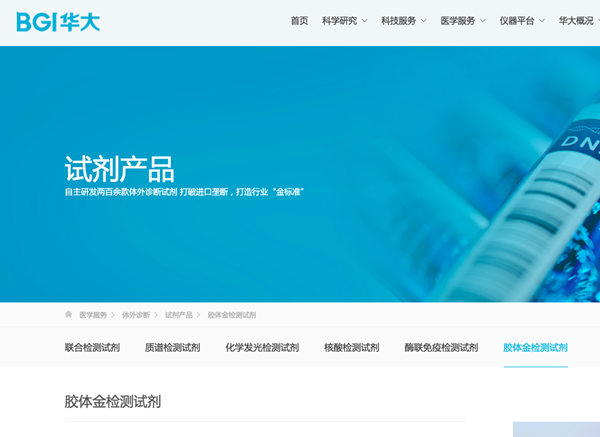BGI test kits added to WHO emergency use list
Writer: Han Ximin | Editor: Stephanie Yang | From: Shenzhen Daily | Updated: 2020-05-20
COVID-19 detection kits produced by Shenzhen-based BGI Genomics have been included on the emergency use list by the World Health Organization (WHO).

The WHO added BGI Europe’s real-time fluorescent RT-PCR kit to its list as the fifth global entrant to suggest more high-quality tests for WHO member states, Zhu Yanmei, executive director with BGI, said at a news conference organized by the Shenzhen Municipal Government yesterday.
BGI now produces 2 million detection kits every day and has received 20 million international orders from 160 countries and regions.
Additionally, BGI’s Huo-Yan (or Fire Eye) labs have been set up in the U.A.E., Brunei, Serbia, Saudi Arabia, Australia and the Philippines, increasing the testing capability of the countries, Australia for example, by three times.
About 20 more countries and regions are negotiating with BGI to set up 70 labs, according to Zhu.
Meanwhile, Shenzhen Mindray Biomedical Electronics Co. Ltd., which owns 40 subsidiaries around the world, has been busy with installations and tests of medical equipment like ventilators, and training in 50 hospitals, since the global COVID-19 outbreak.
“In Russia, Mindray has provided over 3,000 pieces of equipment including ventilators, monitoring and ultrasonic devices and intravenous injection pumps,” Wu Hao, vice president of Mindray, said at the conference.
“Since March, we have received orders from more than 100 countries. Italy purchased 10,000 devices and we worked day and night and completed delivery and installation within 15 days,” he said.
So far, the firm has exported 100,000 ventilators overseas.
Shenzhen-based carmaker BYD, which pivoted to mask-making after the coronavirus hit, has created the world’s largest mass-produced face mask plant, Li Wei, director of BYD’s president’s office, said at the conference.
The company held 200 meetings in 100 days, worked out the mask design in three days, assembled necessary machines in seven days, produced the first batch of masks in 10 days and increased capacity to 5 million masks a day in 24 days.
The plant is now running at full capacity and is able to produce 50 million masks per day, more than double the total capacity of the whole industry in China before the outbreak.
The company has so far donated 10 million masks and is expected to export 1 billion masks in May.
“There is no challenge in producing masks. The challenge is big demands in such a pressing time. It is hard to purchase spare parts from suppliers during epidemic period, so BYD engineers produce 80-90 percent of the total 1,300 spare parts that a mask machine needs,” Li said.